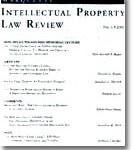 It is a little known fact that Eckstein Hall will occupy part of the site of Milwaukee’s first major league baseball park. The park, which was used during the 1878 season, lay to the east and south of the new law school, and were it still there, the windows of Eckstein would provide a perfect view into the facility.
It is a little known fact that Eckstein Hall will occupy part of the site of Milwaukee’s first major league baseball park. The park, which was used during the 1878 season, lay to the east and south of the new law school, and were it still there, the windows of Eckstein would provide a perfect view into the facility.
Major League Baseball first came to Milwaukee in November of 1877 when the West End Club of Milwaukee was admitted to the two-year old National League. As a member of the professional League Alliance the previous season, the Milwaukee club had played at its own park at 34th and State, but once it was admitted to the National League—already accepted as the premier baseball league in the United States—its board of directors decided to build a new park closer to downtown.
The new park was constructed on a site on the opposite side of Clybourn from Eckstein Hall which had been used the previous year as the grounds for the Milwaukee Cricket Club. The park itself extended from 10th and Clybourn in a southwesterly direction to Clermont (12th) Street.
The new facility opened on May 14, 1878, with a seating capacity of approximately 4000. In its first home game Milwaukee, off to a slow start with a 1-5-1 record after games in Cincinnati and Indianapolis, knocked off the previously unbeaten Cincinnati Reds, 8-5. The next day’s Milwaukee Daily News carried a detailed account of the game including the following observations: “The weather was all that could be asked, and the crowd in attendance was large. The best classes of our people were represented, and many ladies graced the occasion by their presence. The home club appeared in splendid condition, and were clad in their gray uniform. The Cincinnati boys were exceptionally fine-looking, and made a very jaunty appearance in their white uniforms.”
In its second game, played on the 16th, the locals beat Cincinnati a second time, 12-8, and climbed out of last place for the first time that season. The team unfortunately lost its next three home games before defeating Indianapolis 10-7 on May 25 to close out its initial home stand with a 3-3 record.
Alas, the 1878 season turned out to be anything but a success for Milwaukee. After the May 25 victory, the team lost 37 of its next 48 games and never won more than two games in a row. It finished with a 15-45-1 record, good for last place in the six-team league. Even more disappointing was the team’s home attendance which declined as the season progressed, and as residents of the Cream City lost interest in their losing nine. Poor attendance let the team to reschedule a number of its home games in the parks of its opponent in July and August, and by the end of the season the club had played ten more games on the road than at home.
Although the team was able to fulfill its on the field commitments to the National League, it was clearly teetering toward bankruptcy when it completed play with a 4-3 home field victory over Providence on September 14. In December, the team was expelled from the National League for failing to meet its financial obligations, and in January of 1879, the park’s “grand stands, seats, fences, etc.” were sold at a sheriff’s sale to satisfy an unpaid judgment of $135.61. The park itself was used by amateur teams for the next several years before apparently being abandoned as new facilities became available in the city.
Milwaukee baseball historian Denis Pagot’s detailed account of Milwaukee’s first major league ballpark by can be found here.
 The thirteenth volume of the Marquette Intellectual Property Law Review (Summer Edition 2009) has recently been published and is now available. Our outgoing editor-in-chief, Melissa Benko and her excellent board have done an outstanding job once again.
The thirteenth volume of the Marquette Intellectual Property Law Review (Summer Edition 2009) has recently been published and is now available. Our outgoing editor-in-chief, Melissa Benko and her excellent board have done an outstanding job once again.

 It is a little known fact that Eckstein Hall will occupy part of the site of Milwaukee’s first major league baseball park. The park, which was used during the 1878 season, lay to the east and south of the new law school, and were it still there, the windows of Eckstein would provide a perfect view into the facility.
It is a little known fact that Eckstein Hall will occupy part of the site of Milwaukee’s first major league baseball park. The park, which was used during the 1878 season, lay to the east and south of the new law school, and were it still there, the windows of Eckstein would provide a perfect view into the facility.